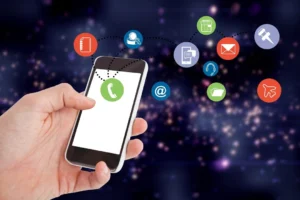WhatsApp automation is quickly becoming a vital tool for businesses aiming to enhance their customer service and streamline communication. With its vast reach and interactive features, WhatsApp has moved beyond a messaging platform into a powerful business tool that helps automate daily tasks, save time, and provide quick, responsive service.
Whether you run a small business or manage a large enterprise, automating your customer interactions through WhatsApp can make a world of difference. Let’s dive into how WhatsApp automation works, its benefits, and how you can set it up to improve business efficiency and customer experience.
What is WhatsApp Automation?
WhatsApp automation refers to the use of tools and technologies to automatically handle certain tasks within WhatsApp, such as responding to customer queries, sending order updates, or providing appointment reminders. This can be done using WhatsApp’s Business API or third-party automation platforms that help you streamline customer interactions at scale.
The automation process can be as simple as setting up automated replies to frequently asked questions (FAQs) or as complex as creating multi-step workflows that respond to customer inquiries in real time.
Benefits of WhatsApp Automation
- Improved Efficiency: Automate routine tasks like sending order confirmations and responses to common queries. This saves your team valuable time and effort.
- 24/7 Customer Support: With automation, your business can respond to customers even outside office hours, offering round-the-clock service.
- Personalisation at Scale: Automated systems can still send personalised messages, which ensures that customers feel valued without the need for human intervention for each interaction.
- Cost Savings: By handling common customer interactions automatically, your business can reduce the number of staff needed for customer service and sales.
Key Use Cases for WhatsApp Automation
1. Customer Support Automation
Customer support is often one of the most time-consuming tasks for businesses. With WhatsApp automation, you can set up automated responses to frequently asked questions (FAQs), so customers can get the information they need instantly.
- Common Queries: Set up automatic replies for frequently asked questions, such as store hours, shipping details, or product availability.
- Instant Problem-Solving: Automate troubleshooting responses or guide customers to relevant resources such as help articles or videos.
- Basic Product Support: Create workflows to handle simple technical issues, allowing your support team to focus on more complex cases.
With WhatsApp automation, your customers will always get timely responses, helping build trust and loyalty.
2. Order Confirmations and Shipping Updates
If you run an online store, WhatsApp automation is perfect for keeping your customers updated about their orders. You can automate:
- Order Confirmation: Send automated messages to confirm a customer’s order and provide them with details like estimated delivery time and payment status.
- Shipping Notifications: Automatically update customers when their order has been dispatched, complete with tracking links.
- Delivery Updates: Let customers know when their order is out for delivery, including the expected delivery window.
By automating these notifications, you reduce customer anxiety and improve their overall experience.
3. Appointment Scheduling and Reminders
For businesses in sectors like healthcare, beauty, or education, automated appointment scheduling can be a game-changer. WhatsApp automation enables businesses to:
- Instant Booking: Allow customers to book, confirm, or cancel appointments directly through WhatsApp.
- Automated Reminders: Send automated reminders ahead of appointments to minimise no-shows and last-minute cancellations.
- Rescheduling and Follow-ups: Enable customers to reschedule appointments or request follow-ups without needing to speak to a human representative.
This type of automation reduces the workload for your staff while improving customer satisfaction.
4. Marketing and Promotions
WhatsApp automation is also an effective tool for marketing campaigns. It allows you to reach your customers with relevant and timely messages about promotions, new products, and upcoming events. You can:
- Send Promo Codes: Distribute promotional codes to encourage repeat purchases, increasing customer retention.
- Share Updates on New Arrivals: Inform customers about new products or services directly through WhatsApp.
- Event Invitations: Automate the process of sending invites for sales events, webinars, or live streams.
These automated messages can be tailored to specific segments, ensuring that the right message reaches the right audience at the right time.
5. Lead Generation and Nurturing
With WhatsApp automation, businesses can capture and nurture leads more effectively. Here’s how:
- Automated Lead Capture: Use WhatsApp to capture leads through interactive forms or messages that customers can fill out.
- Qualifying Leads: Set up automated responses to qualify leads based on their answers to specific questions.
- Follow-up Messages: Once a lead is captured, send automated follow-up messages that offer more information or prompt them to take action.
This process can dramatically improve the speed and efficiency of your sales pipeline.
How to Set Up WhatsApp Automation in Your Business ⚙️
Step 1: Choose the Right Platform
Before you start automating, you’ll need to choose the right tool. You can either use WhatsApp Business (for smaller businesses) or the WhatsApp Business API (for larger businesses). Both platforms allow you to automate certain tasks, but the Business API offers more flexibility and advanced features.
Alternatively, third-party platforms like AiSensy, WATI, and Tidio provide easy-to-use solutions that offer everything from chatbots to CRM integrations, designed to handle large volumes of interactions.
Step 2: Define Your Automation Goals
To get the most out of WhatsApp automation, you should clearly define what you want to achieve. Some common goals include:
- Reducing Response Times: If customers often wait for responses, automate basic replies to speed up response times.
- Improving Customer Engagement: Set up automated responses that encourage more interaction and keep customers engaged with your business.
- Reducing Operational Costs: Automate repetitive tasks to free up staff to handle more complex requests, reducing the need for human intervention.
Once you know your goals, you can start building workflows that help you achieve them.
Step 3: Set Up Automated Messages
Now it’s time to start configuring your automated messages. Here are a few tips for writing effective automated messages:
- Personalisation: Make your automated responses feel personal by including the customer’s name and any relevant details.
- Keep It Concise: Automated messages should be clear and to the point to avoid confusing the customer.
- Provide Clear Options: Include simple commands or buttons that let customers choose what they want to do next, such as “Reply with 1 for more info” or “Click here to book your appointment.”
Step 4: Test, Review, and Optimise
Once your automation is set up, it’s time to test everything. Run several tests to see if the automated replies are functioning as intended. After launching your automation, continue to monitor customer feedback, adjust workflows, and make improvements.
Metrics to track include:
- Response Time: How quickly are your automated messages sent?
- Customer Satisfaction: Are customers finding your automated responses helpful?
- Conversion Rates: Are automated messages leading to more sales, bookings, or inquiries?
Best WhatsApp Automation Tools for Your Business ️
Here are a few WhatsApp automation tools that are worth considering:
1. AiSensy
AiSensy is designed for businesses that want to create sophisticated messaging workflows. It offers features like chatbots, bulk messaging, and custom integrations with your CRM.
- Best for: Small to medium-sized businesses that want easy integration with existing platforms.
- Features: Multi-user support, message templates, and reporting tools.
2. WATI
WATI is a robust solution for automating customer interactions. It is especially helpful for businesses that need to scale their operations and handle high volumes of interactions.
- Best for: Mid to large-sized businesses.
- Features: Advanced chatbots, CRM integrations, and detailed analytics.
3. Tidio
Tidio is an easy-to-use platform that integrates WhatsApp with live chat and chatbots, allowing businesses to automate and manage customer conversations across multiple channels.
- Best for: Small businesses that need a simple, affordable solution.
- Features: Chatbots, email and live chat integrations, and real-time performance tracking.
Final Thoughts: Is WhatsApp Automation Right for Your Business?
If you want to improve customer engagement, save time, and reduce operational costs, WhatsApp automation could be just what your business needs. By automating routine tasks, such as customer support, order updates, and lead generation, you can deliver faster, more efficient service without compromising quality.
Implementing WhatsApp automation doesn’t have to be complex. Start with small, manageable tasks and gradually scale up as you see the benefits. Your customers will appreciate the quicker response times and more personalised interactions, while your business will see improved efficiency and cost savings.
Ready to Get Started?
By now, you’ve seen how WhatsApp automation can save you time and money while improving customer satisfaction. Whether you’re automating simple tasks or complex workflows, the possibilities are endless.
Start automating today and see how it can improve your business communication. Need help setting up? Reach out to our team for a tailored plan that fits your needs.


